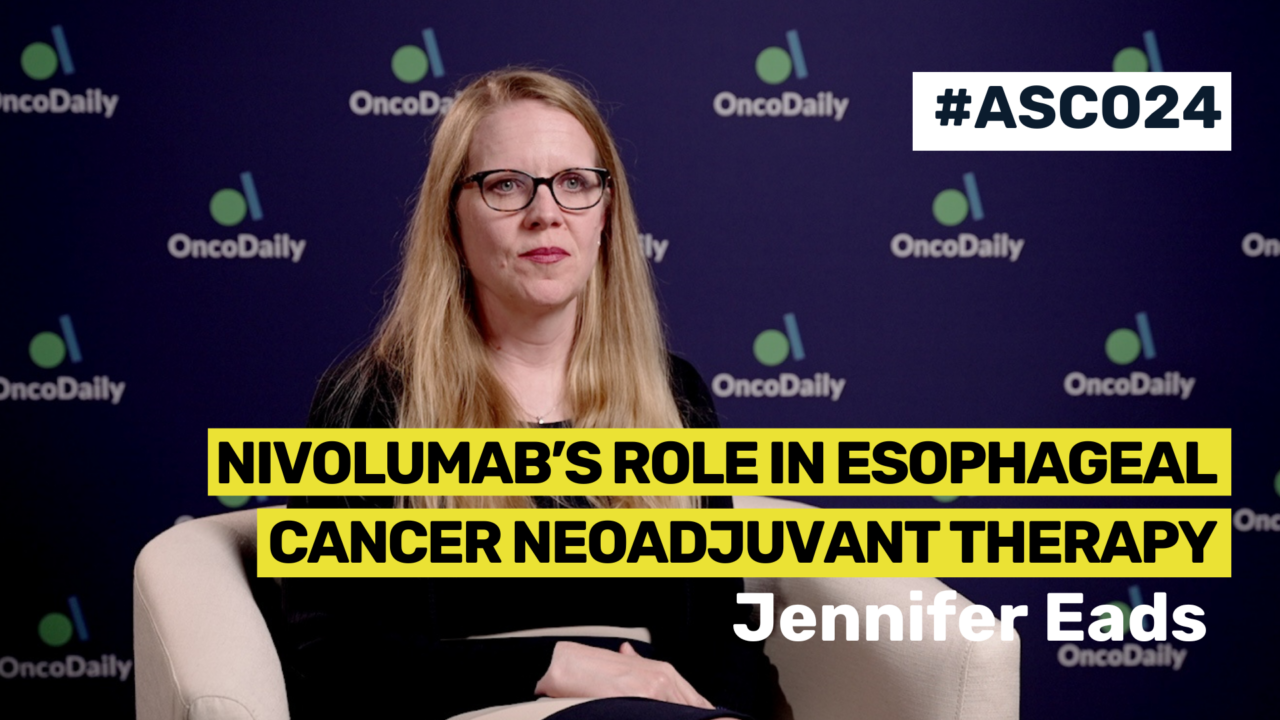The American Society of Clinical Oncology (ASCO) Annual Meeting is one of the largest and most prestigious conferences in the field of oncology. This year, the meeting took place from May 31 to June 4 in Chicago, Illinois. The event gathers oncologists, researchers, and healthcare professionals from around the world to discuss the latest advancements in cancer research, treatment, and patient care. Keynote sessions, research presentations, and panel discussions are typically part of the agenda, providing attendees with valuable insights into emerging trends and innovations in oncology.
This year, OncoDaily was at ASCO 2024 for the first time covering the meeting on-site. We had the pleasure of interviewing researchers who summarized the highlights of their work.
In this video, Jennifer Eads, MD, Associate Professor of Clinical Medicine at the University of Pennsylvania, Abramson Cancer Center, Philadelphia, shares insights from their oral presentation on “A phase II/III study of peri-operative nivolumab (nivo) and ipilimumab (ipi) in patients (pts) with locoregional esophageal (E) and gastroesophageal junction (GEJ) adenocarcinoma: Results of the neoadjuvant pathologic complete response (pCR) rate (ECOG-ACRIN EA2174)”.
My name is Dr. Jennifer Eads. I’m a GI medical oncologist and associate professor of medicine at the University of Pennsylvania Abramson Cancer Center. This year I was given the opportunity to present at the ASCO annual meeting the results of the ECOG-ACRIN EA2174 clinical trial.
This is a randomized phase two, three study of perioperative immunotherapy in patients with localized esophageal adenocarcinoma. We decided to pursue this trial because the role of immunotherapy in the metastatic setting has been established as a successful treatment option. However, the role of immunotherapy in the localized disease setting is unknown.
So standard of care for esophageal adenocarcinoma that is localized has been treatment with carboplatin, paclitaxel and radiation therapy, all of the cross regimen. So in this trial, we randomized 275 patients to receive either standard of care, carboplatin, paclitaxel and radiation therapy versus the same regimen plus the addition of two doses of nivolumab. Patients then went on to have surgical resection and our primary endpoint for the study was to determine if the addition of immunotherapy improved the pathologic complete response rate.
We did see in the patients receiving standard of care treatment that the pathologic complete response rate was 21% versus with the addition of nivolumab, the pathologic complete response rate was 24.8%. This was not statistically significant indicating that there was no additional benefit to receiving nivolumab in combination with chemoradiation therapy for patients with localized esophageal adenocarcinoma.
This definitely gives us insight into how further clinical trials should be designed in the localized esophageal adenocarcinoma setting and has led us to understand that there does not appear to be a role for immunotherapy in the neoadjuvant setting. I will say that this trial has two parts.
The second part, which is not being presented this year, but is looking at the role of adjuvant immunotherapy in patients postoperatively. We’re looking to see if the addition of ipilimumab to nivolumab is superior to nivolumab alone in the adjuvant setting, and the results of this portion of the trial will be presented at a later date.
More videos and content from ASCO 2024 on OncoDaily.


